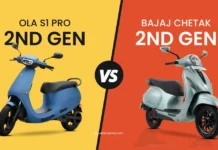 India’s EV sector is set to lead the race for EV adoption in the world.
India’s EV sector is set to lead the race for EV adoption in the world.
Union Minister for Road Transport and Highways, Shri Nitin Gadkari emphasized the Government’s focus on converting mass transport systems to electric vehicles and achieving the ambitious target of carbon neutrality by 2070.
He also highlighted India’s commitment to reduce pollution and reduce its staggering annual fossil fuel import bill of ₹22 lakh crore.
The announcement was made during the 21st EV Expo 2024, Indi’s very famous event featuring the 8th Catalyst Con, held at Pragati Maidan, New Delhi.
Shri Nitin Gadkari announced that By 2030, the Indian EV market is expected to achieve a valuation of ₹20 lakh crore. he also said that the EV sector will create 5 crore new jobs by 2030.
Key Highlights from the Events
Market Growth:
India’s EV sector has seen remarkable growth, with 30 lakh EVs registered in 2023-24 alone—a 45% increase in sales.
EV penetration in the market now stands at 6.4%, with electric two-wheelers comprising 56% of total two-wheeler sales.
Over 400 startups have entered the EV domain, driving innovation and job creation.
Future Projections:
By 2030, the Indian EV market is expected to achieve a valuation of ₹20 lakh crore.
Hybrid and electric vehicles are projected to account for 8% of the market by 2028.
The EV finance market is anticipated to reach ₹4 lakh crore.
Lithium Reserves:
India’s recent discovery of 6 million tonnes of lithium in Jammu & Kashmir represents 6% of the global stock.
This reserve is sufficient to support the production of 60 crore EVs, with efforts underway to expedite its utilization.
Cost Reductions:
The lifecycle cost of lithium-ion batteries has been reduced to $115 per kilowatt-hour and is expected to drop below $100 within six months.
Recycling Opportunities:
The lithium-ion battery recycling market is projected to grow significantly, reaching ₹50,000 crore by 2030.
World Leadership in EVs:
He urged Indian industry leaders to seize the opportunity to expand production tenfold and establish India as a global leader in the EV sector. Competing with countries like China would require superior technology, uncompromising quality standards, and strategic utilization of resources.




